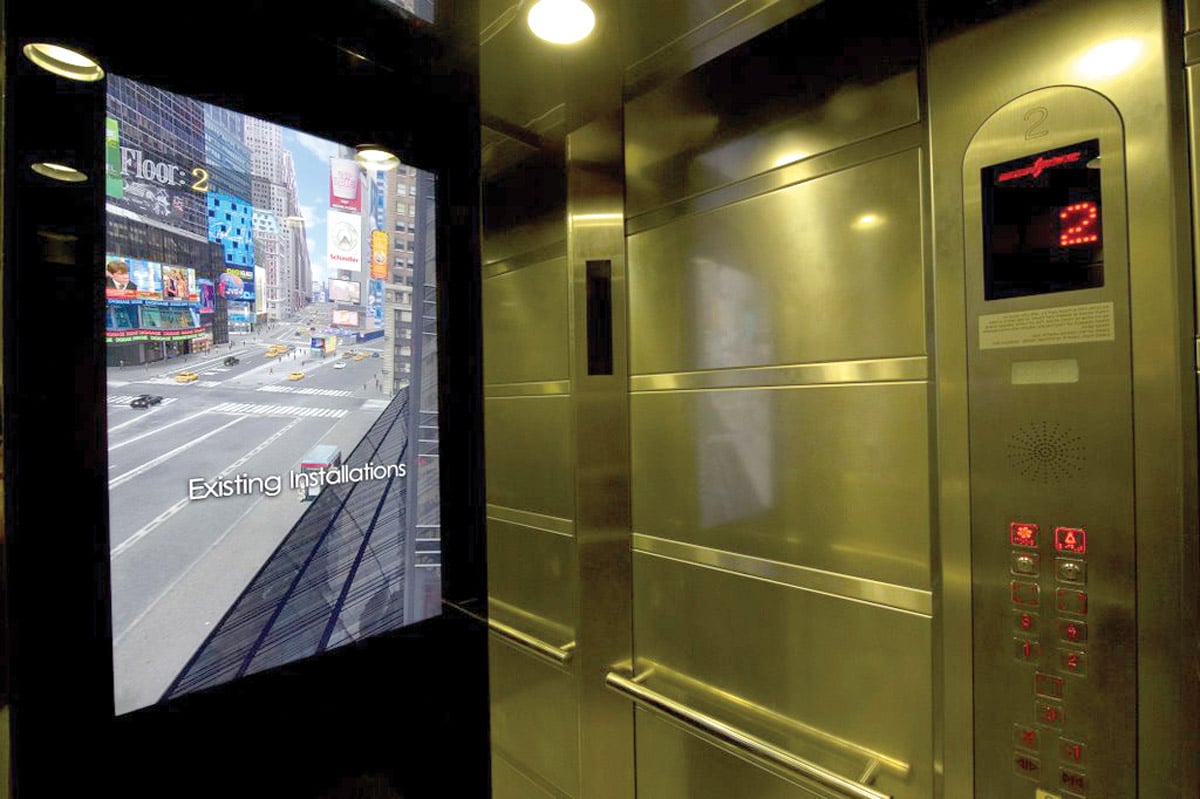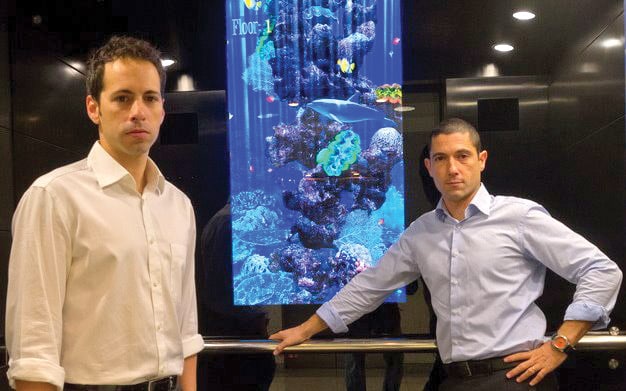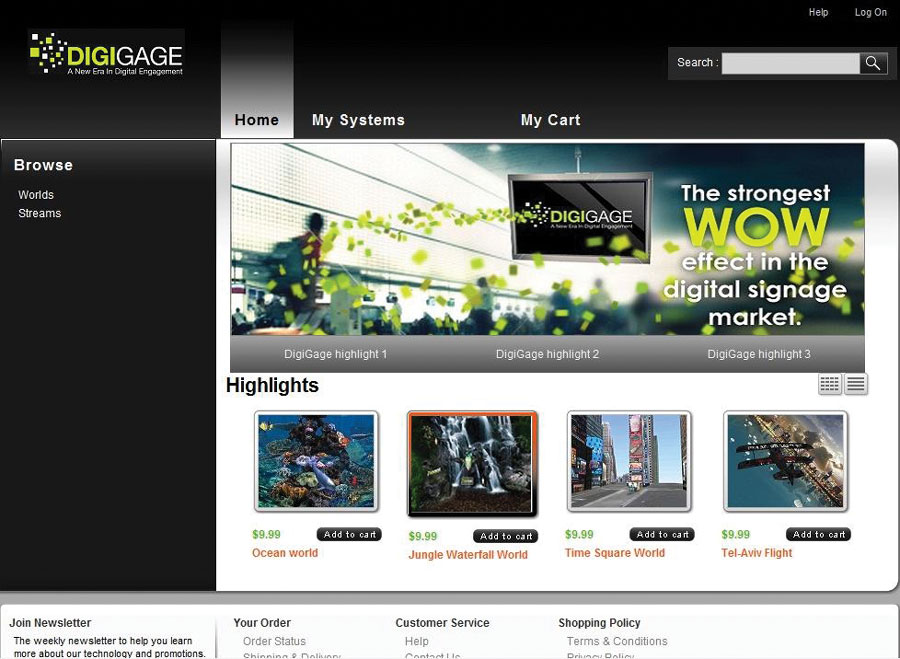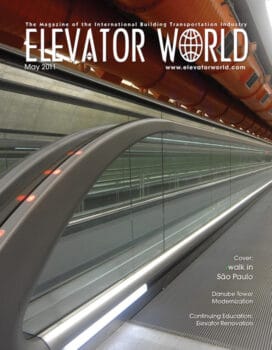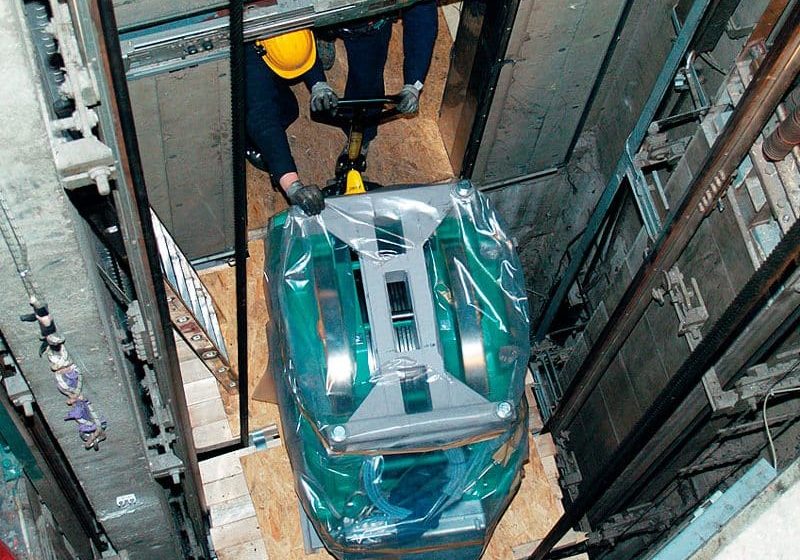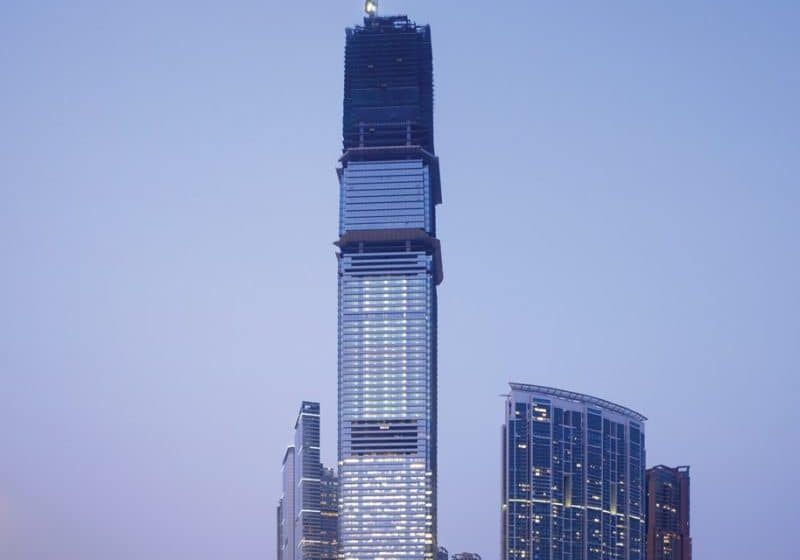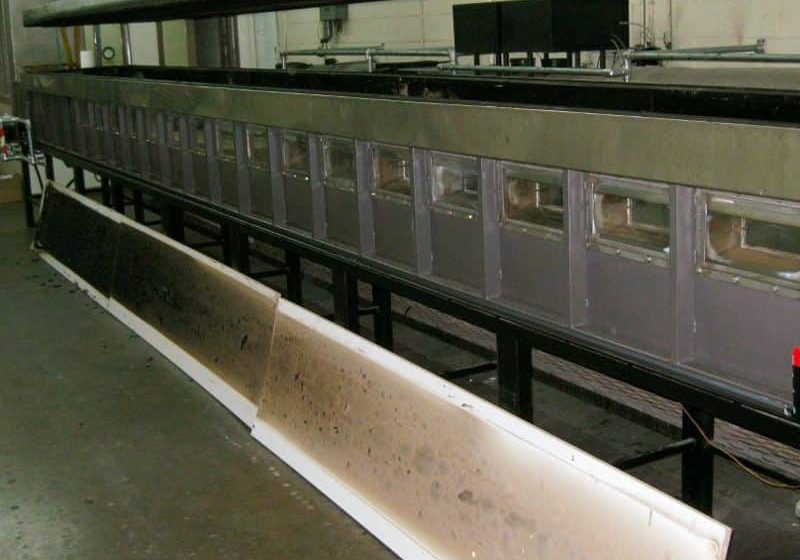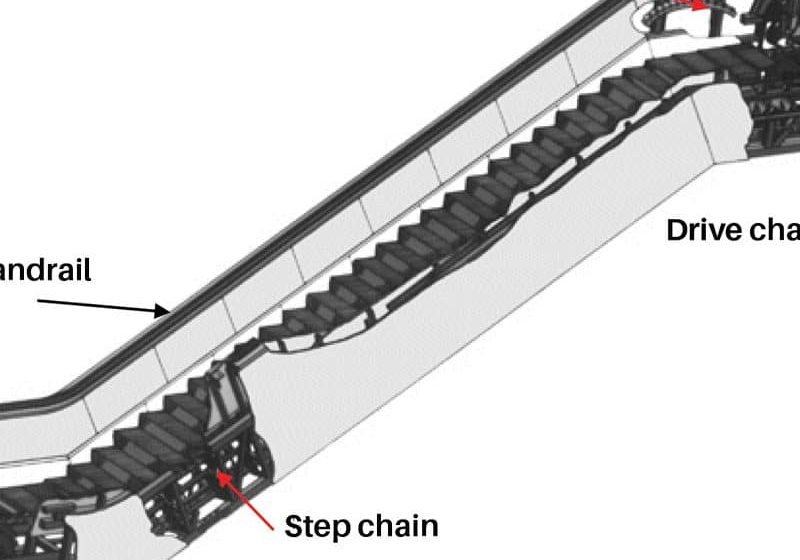DigiGage is an Israeli startup company led by two technologically minded entrepreneurs targeting the enhancement of the user experience and ride differentiation of elevators. After two years of development and examining different markets and products for its patent-pending technology, DigiGage has rolled out an “immersive architecture and experience design product for elevators.” Founded in 2008 by its president, Ben Kidron, and CEO, Jonathan Einav, the company has nine employees.
According to Tali Krakowsky, founder of experience-design company Apologue, “Experience design is about creating physical environments that integrate new media and change how spaces behave and the way we experience them.” DigiGage brings experience design to the elevator market by using a virtual elevator “window” that imitates the look and behavior of a real window but delivers an experience, in addition to being functional. Dubbed “a digital-décor product,” the product is based on a 22-60-inch screen (or screens) that can be embedded into a glass wall. Within, a variety of scenic, realistic, virtual worlds is displayed.
With no integration or connectivity to the elevator’s internal system apart from a standard electricity outlet and an existing building Internet connection, the window uses DigiGage’s own sensor and proprietary algorithms to detect the movement of the elevator’s cab. Thus, it “knows” whether it is stationary or moving, and the direction, speed, location and degree of acceleration or deceleration. This data is used to control the movement of the content – when the elevator goes up, the passenger’s viewpoint in the virtual world goes up, as well. For example, floor-level objects remain at the floor level when the elevator goes up, as would occur with a real window. This synchronizes the sensation of movement with display.
Furthermore, certain content objects behave differently from others by “escorting” the window as it moves. For example, in an ocean world that simulates an underwater elevator, a dolphin can follow the cab, while the reef and fish stay at their initial position or height. The system is controlled by the DigiGage Internet portal that includes a content library comprising different content worlds. A building’s manager, residing company or tenants can swap the content of the system in a click. In addition, the product offers an in-building messaging system onscreen, which can include a floor numbering display, floor-based textual data and a real-time, rich site summary-feed-based information strip.
DigiGage has installed systems in several types of elevators inside residential buildings and office buildings. It has reported positive feedback, with users explaining that their rides feel shorter and the elevator cabins seem larger. According to Joseph Shachak, CEO of I.O.A. Elevator Consulting Engineering:
“Every architect should be aware of the wonderful capabilities the digital design product DigiGage delivers and, I am sure, every building [owner] would be happy to learn how [to] use [this] main means of transportation to communicate information and messages. I think this is the first time that a product [has been] introduced to the elevator market that does not deal only with flow control, velocity or mechanics, but with the user experience in the elevator cab. I believe this is the direction where our industry is headed and that this is how the future standard elevator will look like.”
Get more of Elevator World. Sign up for our free e-newsletter.
